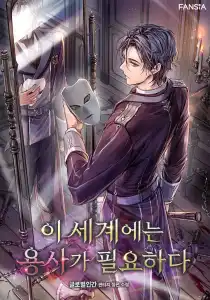Chapter 169: National Army Law Enforcement Task Force
"What do I need?" Fouch asked, "First and foremost, I need money! I can't have my men going up against enemies with single-shot pistols while they wield revolvers. They can't be using knives against opponents armed with handguns and melons!"
"Anything else?" Grzmann inquired.
"In the short term, I need the authority to mobilize the National Guard. They're scattered throughout the neighborhoods, and I need to be able to call upon them. Of course, we can discuss the numbers."
"The National Guard isn't a regular army, and there won't always be people available. Most of the time, they're going about their own business," a parliamentarian chimed in. "Mobilizing them would take time, and if there's a crisis, it might be too late."
"In that case, we can amend the National Guard's regulations and establish a duty roster. There must be a certain number of personnel on standby in fixed locations every day. At least until the situation is resolved, the National Guard must maintain this state of readiness," Fouch replied.
"But can the National Guard really handle these unruly mobs?" Grzmann questioned.
"Yeah, can they? I honestly think they're not as reliable as the police."
"You're absolutely right. Remember last time when a few thousand National Guard members were chased by a couple of hundred insurgents? Just as Minister Fouch said, those rioters are well-trained soldiers, and the numbers of National Guard in each district aren't that large to begin with, and even fewer can be on duty. Even if we add them..."
"That's right... I don't trust the National Guard at all. If there's trouble, they'll probably run faster than us."
The debate continued, and overall, many had reservations about the National Guard.
"Quiet, please, quiet!" Odom raised his gavel again.
After a while, the bustling parliamentary hall gradually fell silent.
"In addition, I hope to establish an independent, well-equipped, highly trained, 24/7-ready police force to handle high-intensity violent incidents like these," Fouch continued.
Fouch made a long list of demands, and it was clear that they wouldn't get immediate responses. It involved too many trade-offs and power allocation issues, so it would take time.
But Fouch wasn't in a hurry. He believed that the longer he waited, the heavier the blow they would deliver, and the heavier their blow, the more advantageous it would be for him. Of course, provided that their targets didn't include Fouch's side.This chapter is updated by nov(e)(l)biin.com
"Shut up! Do you understand it now?"
"Yes!"
"Then get it done quickly!" Lucien scolded. "My goodness, how can I have such a dim-witted little brother..."
After scolding him, Lucien looked up and saw Jerome holding a small notebook, standing in front of him. "Lucien, I can't figure out this problem no matter how I think about it. Can you explain it to me?"
After a period of silence, the rioters launched another terrifying attack, this time targeting the parliamentary building. Although their attack didn't succeed, the parliamentarians inside were left shaken.
A few days later, the various parties finally reached a new consensus.
The budget for the police department was significantly increased, and they were granted temporary authority to mobilize the National Guard on duty in various districts. But allowing the police department to have a combat-ready elite force, many people, especially those who had witnessed a few hundred insurgents overwhelming several thousand National Guard members, found this hard to accept. Could they really let Fouch, a Jacobin remnant, control such power? People feared that they wouldn't be able to sleep peacefully.
Nevertheless, Paris needed a force like this, and it had to be under the jurisdiction of the police department. But the control of this force could not be given to the police department. After some negotiations, a compromise was reached.
This force would consist of no more than three hundred individuals, and its organization and command would fall under the War Ministry. The Ministry of War, which already had numerous military units under its command, could easily incorporate this additional force. As for how the police department would utilize them, it was quite simple; an office would be established within the Ministry of Public Safety to oversee this matter.
Thus, this force acquired a unique name: the National Army Law Enforcement Task Force.
Regarding personnel, there were readily available soldiers from the "Red Army," so it was a matter of reassigning troops from there. After suppressing the Royalist uprising earlier, the Red Army had been restored to a thousand-strong force. At this moment, transferring three hundred soldiers was relatively straightforward.
Lieutenant Bruto, also from the "Red Army," became the first commander of this force.
Since these targets had been mostly achieved, Fouch immediately sprang into action. In reality, these insurgents, though well-trained soldiers and supported by Royalists, couldn't have hidden in Paris without leaving any traces.
Fouch had been keeping a close eye on their hideouts. They were mostly holed up in the Saint-Antoine district, a poor neighborhood with minimal police presence, which seemed relatively safe.
Around noon, the Saint-Antoine district began to empty out as large numbers of people left for work elsewhere. At this moment, a squad of soldiers quietly entered the district.
"Everyone, be quiet, and approach stealthily. Do not open fire indiscriminately," Lieutenant Bruto, who led the squad personally, instructed.







